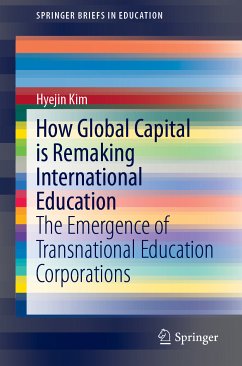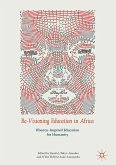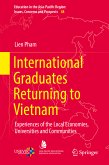In the past decade, TECs have burst onto the international schooling scene. Private firms, publicly listed firms, and private equity groups have transformed international education into an industry valued at over USD 30 billion. Nowhere has the impact been stronger and more sudden than in Asia. The top three international education firms with a presence in Asia run more than 20 schools in East and Southeast Asia with another six in India. Each educates tens of thousands of students around the globe and has an annual revenue of over USD 300 million. TECs offer a window onto the creation of new markets and the complex positions of governments in regulating social affairs. This book helps readers to understand who these firms are, what they do and how they have grown.
Dieser Download kann aus rechtlichen Gründen nur mit Rechnungsadresse in A, B, BG, CY, CZ, D, DK, EW, E, FIN, F, GR, HR, H, IRL, I, LT, L, LR, M, NL, PL, P, R, S, SLO, SK ausgeliefert werden.









